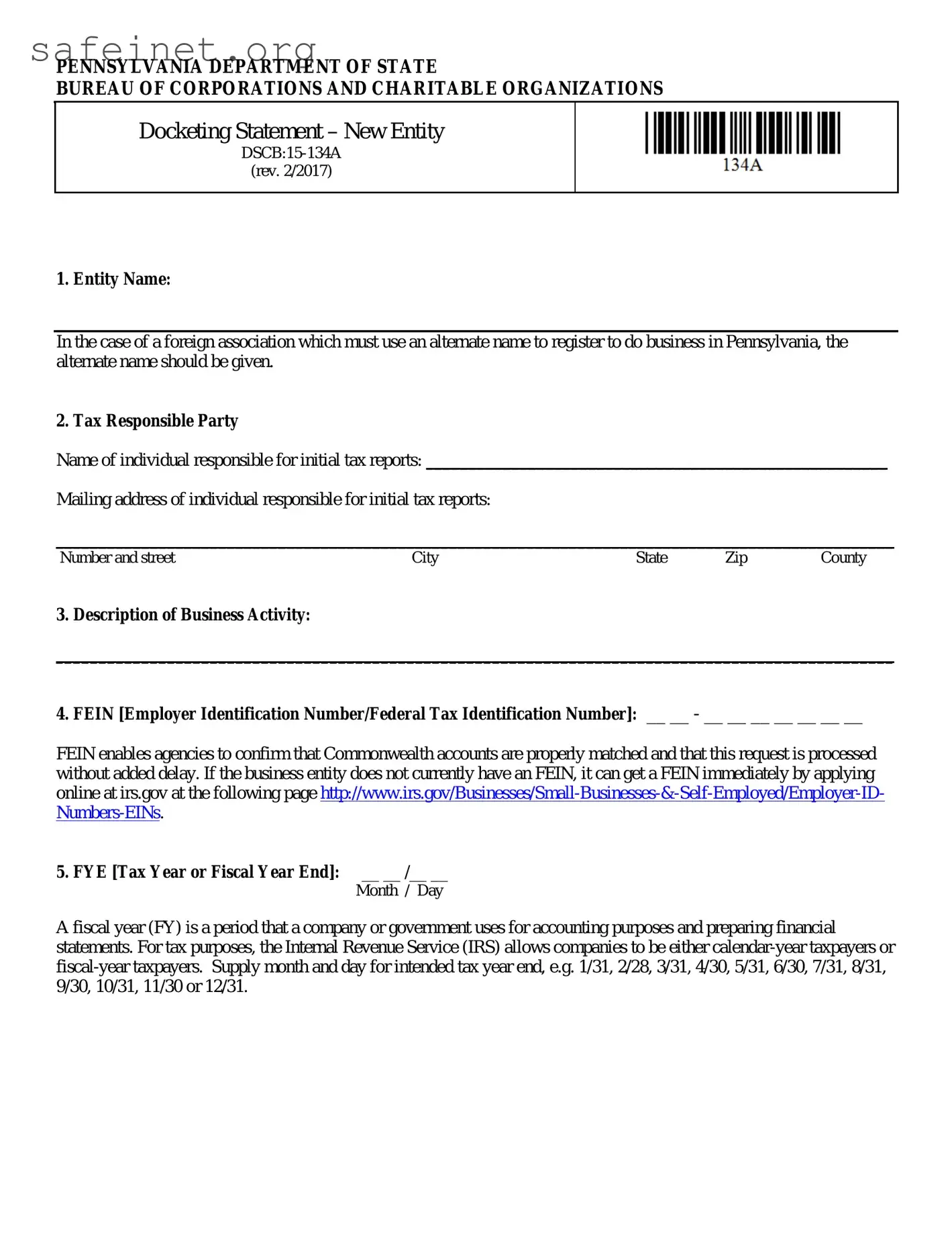PENNSYLVANIA DEPARTMENT OF STATE
BUREAU OF CORPORATIONS AND CHARITABLE ORGANIZATIONS
Docketing Statement – New Entity
DSCB:15-134A
(rev. 2/2017)
1. Entity Name:
In the case of a foreign association which must use an alternate name to register to do business in Pennsylvania, the alternate name should be given.
2. Tax Responsible Party
Name of individual responsible for initial tax reports: ______________________________________________________
Mailing address of individual responsible for initial tax reports:
__________________________________________________________________________________________________
Number and street |
City |
State |
Zip |
County |
3.Description of Business Activity:
__________________________________________________________________________________________________
4.FEIN [Employer Identification Number/Federal Tax Identification Number]: __ __ - __ __ __ __ __ __ __
FEIN enables agencies to confirm that Commonwealth accounts are properly matched and that this request is processed without added delay. If the business entity does not currently have an FEIN, it can get a FEIN immediately by applying online at irs.gov at the following page http://www.irs.gov/Businesses/Small-Businesses-&-Self-Employed/Employer-ID- Numbers-EINs.
5.FYE [Tax Year or Fiscal Year End]: __ __ /__ __
Month / Day
A fiscal year (FY) is a period that a company or government uses for accounting purposes and preparing financial statements. For tax purposes, the Internal Revenue Service (IRS) allows companies to be either calendar-year taxpayers or fiscal-year taxpayers. Supply month and day for intended tax year end, e.g. 1/31, 2/28, 3/31, 4/30, 5/31, 6/30, 7/31, 8/31, 9/30, 10/31, 11/30 or 12/31.

